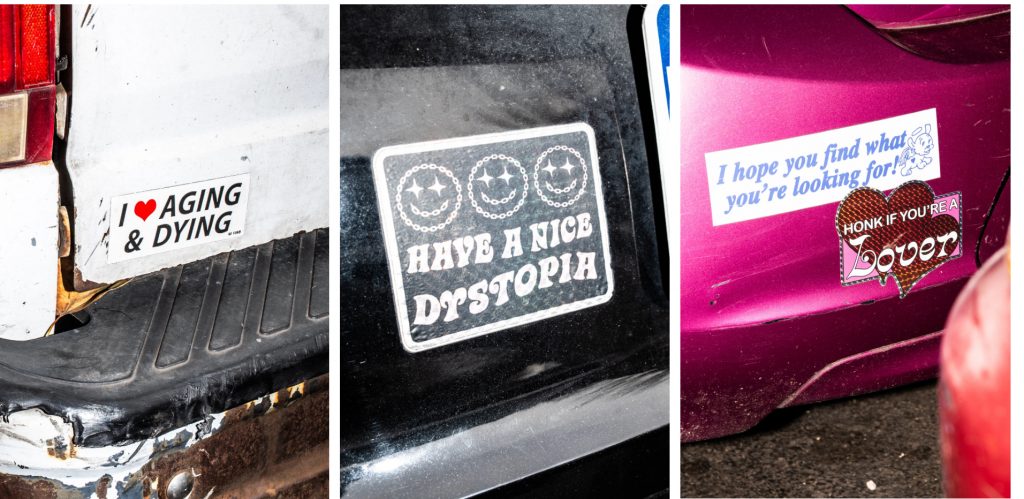
“Bumper stickers used to actually say something about the person,” said Elizabeth Goodspeed, a graphic designer based in Rhode Island. Now, she said, “they don’t tell me anything about the person beyond that they are on the internet.”

I thought it would be fun to create my own bumper sticker for 2025. You are welcome to share your creation…

WORD for 2025 —
logorrhea
noun
log·or·rhea
: excessive and often incoherent talkativeness or wordiness
New Year’s Resolution for 2025 —
Be less logorrheic..
2025 Refrigerator Magnet
“Spirituality is an emotion. Religion is an obligation. Spirituality soothes. Religion mobilizes. Spirituality is satisfied with itself. Religion is dissatisfied with the world.” Rabbi David Wolpe
Daily prayer for 2025
…when my prayer is finished, do not let me think that my worship is ended and spend the rest of the day forgetting You. Rather, from those quiet moments, let light and joy and power pour out and remain with me through every hour of every day,
adapted from “A Diary of Private Prayer – John Baille”
First Prayer of 2025 —

Kind and loving Father,
Protect and bless Archie Scott Gabehart with life abundant.
Be with Gabby and Kyle as they walk through this shadowy valley.
In Jesus name…
STILL ON THE JOURNEY